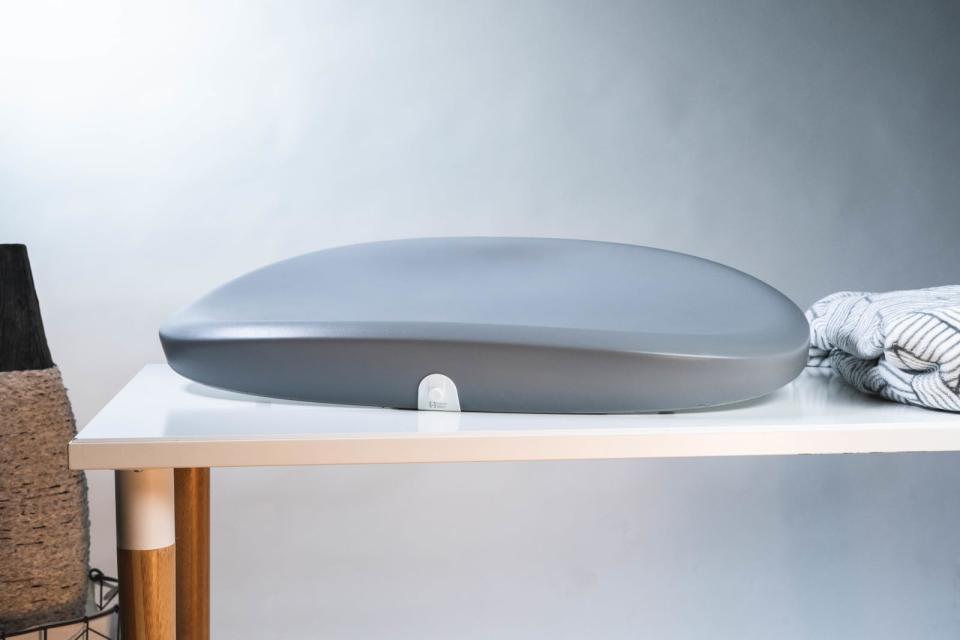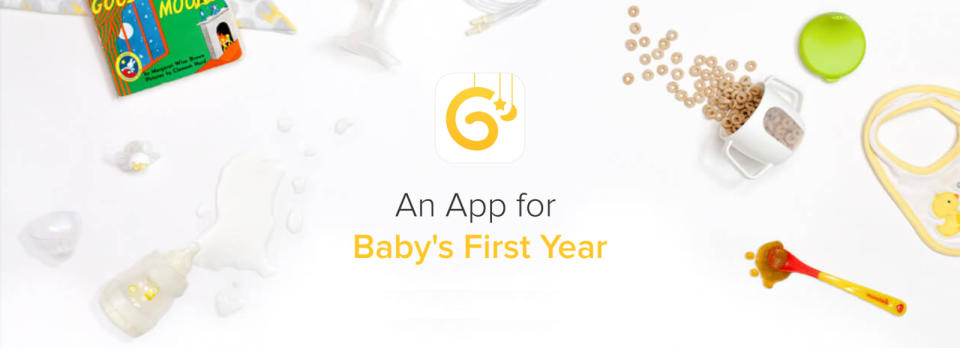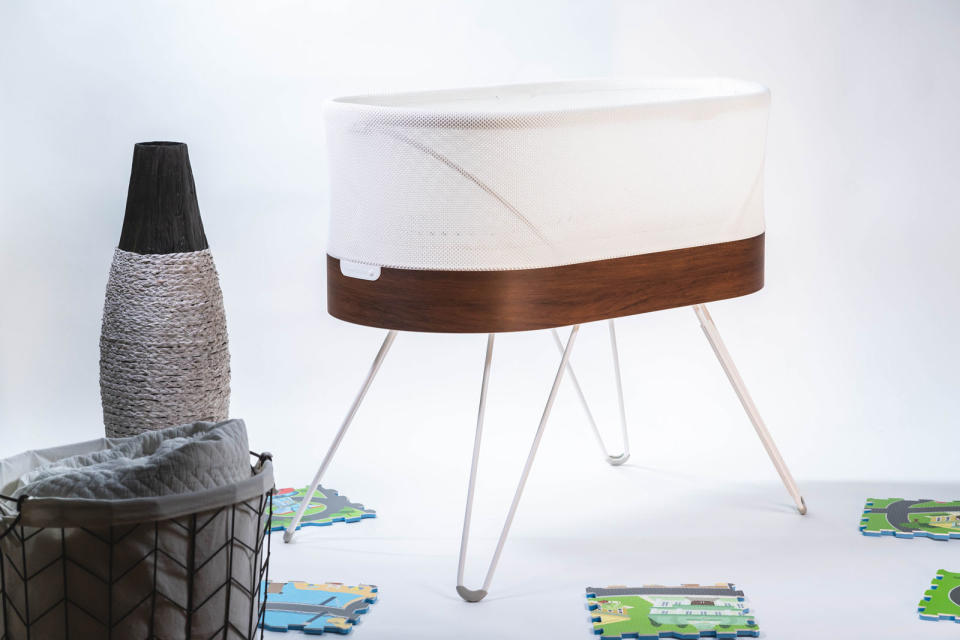How to digitally track everything your baby does
From apps and devices to the trusty spreadsheet, there's plenty of options.

As a first-time parent, I was fully expecting to deal with mountains of dirty diapers, constant feedings and losing lots of sleep. But despite reading plenty of parenting books, I didn't realize how important data tracking would be when taking care of a newborn. When last did my daughter Sophia eat — and how much? Has her diaper been changed recently? And did she nap enough today? Knowing the answers to all these questions is essential for every new mom and dad. Luckily, there are plenty of ways to be a data-conscious parent today, including gadgets, apps and some decidedly old-school methods.
So why do you need to track all this information in the first place? For the most part, it's to make sure your baby is eating and growing enough. When a newborn is breastfeeding, it's tough to track how much they're consuming, so it's worth noting how often and how long they're eating. You can take things a step further by tracking their weight: If they're actually taking food in, they should be gaining ounces steadily. It's also important to know how many wet and dirty diapers a baby is going through, in case they are constipated or have some other health issue. At the end of the day, having a single place to look at all this information is essential, since a sleep-deprived new parent can't be trusted to remember everything.

I'll start with the option my wife and I settled on: the free Hatch Baby app and the Grow smart changing pad ($130). With the app, we can easily track feedings, diapers and sleep sessions. Plugging in all the data is simple across iOS and Android (we're a multi-platform household, no judgment). And once you have enough entries, it automatically plots them on a timeline for easy reference, along with weekly average measurements. Hatch Baby also recently launched an Alexa skill, which lets you log entries without even opening the app. Now all we need to do is tell Alexa to "track a poopy diaper" or "log a six-ounce bottle of formula." It might sound gimmicky, but it's incredibly useful when you have your hands full with a newborn.
Hatch Baby's Grow changing pad is a bit of an extravagance for what's essentially a smart scale, but it's been incredibly useful for my family. After an early weight-loss scare, we wanted to make sure Sophia's development stayed on track. The Grow makes that simple: We place her on the pad, pull out the Hatch Baby app and wait a few seconds. The weighing process usually takes less than five seconds, though it sometimes takes a bit longer if Sophia is extra squirmy. Hatch Baby's app keeps track of all of your weigh-ins, as you'd expect. But don't worry if you don't want to pay for the Grow; the app works fine without it.
If you're looking for something a bit more stylish, there are other apps like Sprout Baby and Glow Baby. They're focused on tracking the same bits of data, but each have their own twist. Sprout Baby gives you a personalized homepage, and it lets you track health data like temperature, symptoms and illnesses. It can also compile that information into a report for your doctor, which you can hand off to your pediatrician or consult during your next visit. This is something I wish Hatch Baby offered for Sophia's monthly appointments. Glow Baby, meanwhile, is mainly focused on tracking your child's first year of development. It's a bit more playful and has colorful imagery instead of boring drop-down menus, and its graphs are easier on the eyes.

Moms to be can even jump into the Sprout and Glow ecosystems long before the baby arrives. They both offer period- and fertility-tracking apps as well as pregnancy monitoring. All of their apps also connect you to health tips and offers, which is how they make money. If you're looking for actual humans to chat with, Glow also has an extensive online community for you to dive into.
While all of the above apps let you manually track your baby's sleep sessions, there's also a more high-tech option out there: the Snoo Smart Bassinet. It takes the idea of swaddling your baby to another level. It's mainly sold as a way to make sure your newborn sleeps properly by strapping them down and automatically rocking them to sleep when they fuss. But it also keeps a log of every sleep session and disruption. You'll still need to jump in afterward to clean up the data, but the Snoo gives you a great head start.

Unfortunately, Sophia didn't like the Snoo as much as I appreciated its data-tracking capabilities, so I stopped using it after a few months. But based on the reviews I've seen, it's fairly successful with less-fussy babies. Of course, its $1,295 price makes it a tough gamble, but now you can rent the Snoo for $98 per month. It's still expensive, but it's a better deal for most parents, especially since babies typically outgrow the Snoo after six months. (Sophia was too big for it by three months.)
If you're more interested in raw data instead of having an easy-to-use app, then you might be better off creating a shared Google Sheet and dumping all of your numbers in there. That gives you the most flexibility to track the data you care about, exactly how you want to. But as you can imagine, this is only an option if you're comfortable managing spreadsheets. Mobile access is also a problem: While you can plug in data from your phone, it's more complex than clicking a few drop-down menus in a dedicated tracking app.
Over time, you won't need to track as much data from your baby. My wife and I gave up on marking sleep sessions once Sophia started snoozing regularly. But even six months in, we're still religiously marking down her feedings and diapers. There are obvious benefits, especially when Sophia gets sick. But on a certain level, it's also comforting: Tracking your baby's growth is a way to maintain a little control in one of the most chaotic periods of your life.
The best tech for tracking your baby's health
Hatch Baby Grow

Plop a baby down on the Hatch Baby Grow ($130) and fire up its app and in seconds you'll have an accurate weight measurement. It's that simple. While there are plenty of baby scales around, the Grow is ideal if you're looking for a smart and relatively automatic option. It keeps a log of your measurements in its app, which is also one of the best baby-data-tracking options around. And on a less high-tech level, the Grow is a great changing pad: It's soft and smooth, and it makes it easy to clean up the inevitable mess.
Sprout Baby

Sprout Baby's free app is one of the most polished options around. And once you've logged your baby's feedings, diapers and weight, it'll create a personalized page, letting you view all of their stats at a glance. Sprout also compiles your baby's data into gorgeous charts, allowing you to see trends. Does your baby eat more on weekends? Or does she get sick after not sleeping enough? Sprout will help you to figure all of that out, easily.
Glow Baby

Glow Baby's free app is solely focused on tracking your child's first year of development. That includes the usual features, like food, diaper and sleep tracking. But it also gamifies the process of inputting all of that data, so you're not just staring at boring drop-down menus all day. Plus it offers well-designed charts of your child's data — it's not as extensive as other apps like Sprout, but it might be useful if your eyes glaze over when confronted with too many data points.
Snoo smart sleeper

The Snoo has gained a reputation for being one of the most advanced baby gadgets around: It can automatically soothe a baby to sleep in the middle of the night. But it's also one of the most expensive, with an asking price of $1,295. (For what it's worth, Amazon sells it for hundreds of dollars less.) Many new parents find it to be worth that price, though, since it means they can often get a few more hours of sleep. The Snoo also tracks your baby's sleep session, so you can know precisely when they started fussing. You can rent it now for $98 per month — which is probably the best option, since your child will probably outgrow it by the time they're six months old.
Google Sheets
The most straightforward way to keep track of your baby's data is the trusty spreadsheet. We recommend Google Sheets, since you can easily share it with your partner, and it has most of the features you'd want from a proper spreadsheet application. With the freedom of endless customizability comes complexity though. Now that there are plenty of baby-tracking apps out there, diving into spreadsheets is something we'd only recommend for serious stathounds.
ENGADGET'S GUIDE TO PARENTING IN THE DIGITAL AGE
Welcome to the Engadget Parenting Guide
The best baby gadgets for new parents
How to manage your child's screen time
The dos and don'ts of helping your kid to sleep
A parent's guide to raising a good digital citizen
STEM kits that will gets your kid's hands dirty
How to quantify your baby's health in the digital age
Using tech to keep your kids organized and on task
The best streaming apps for kids
The baby tech you need (and the tech you don't)
How to buy tech gifts for other people's kids
